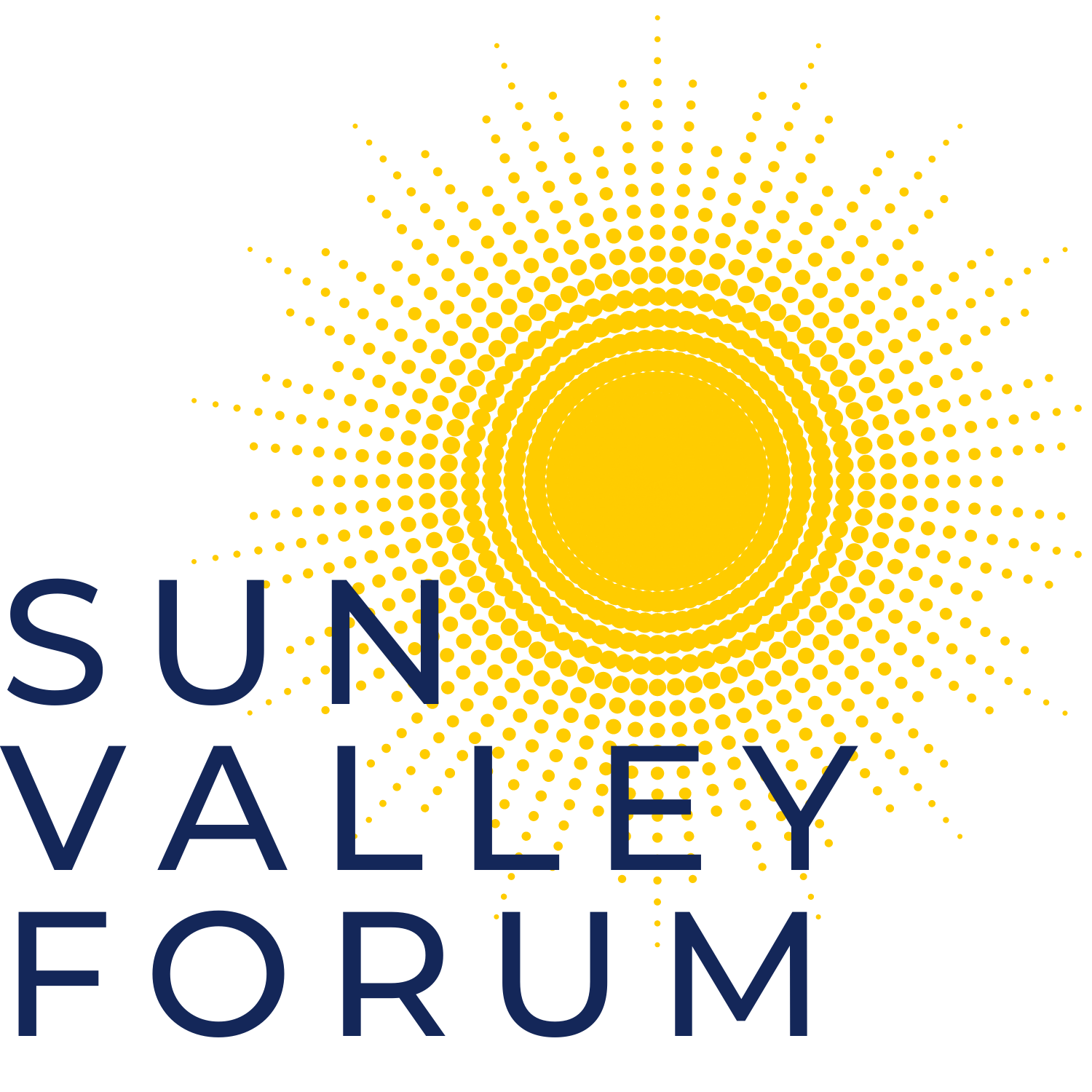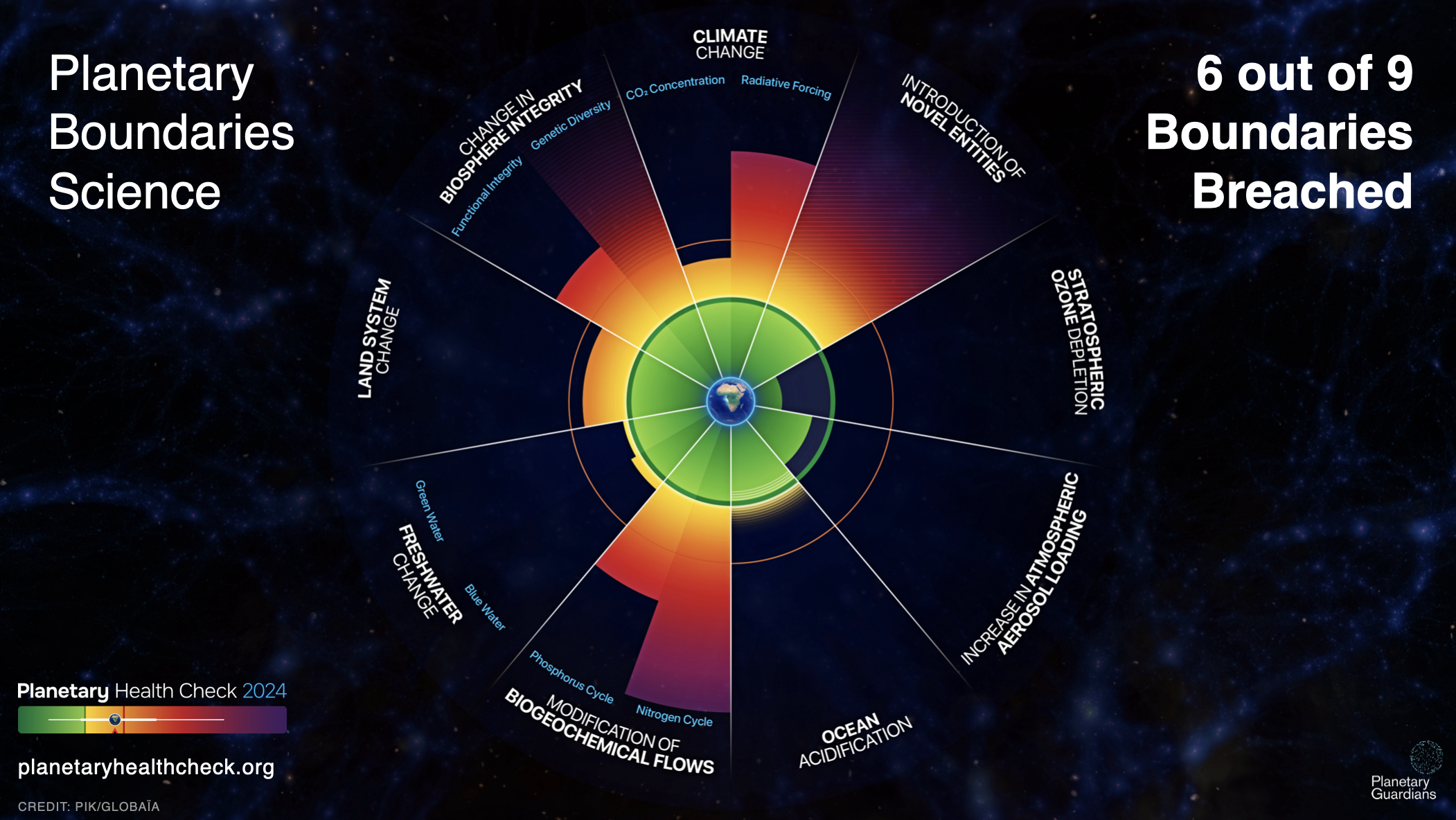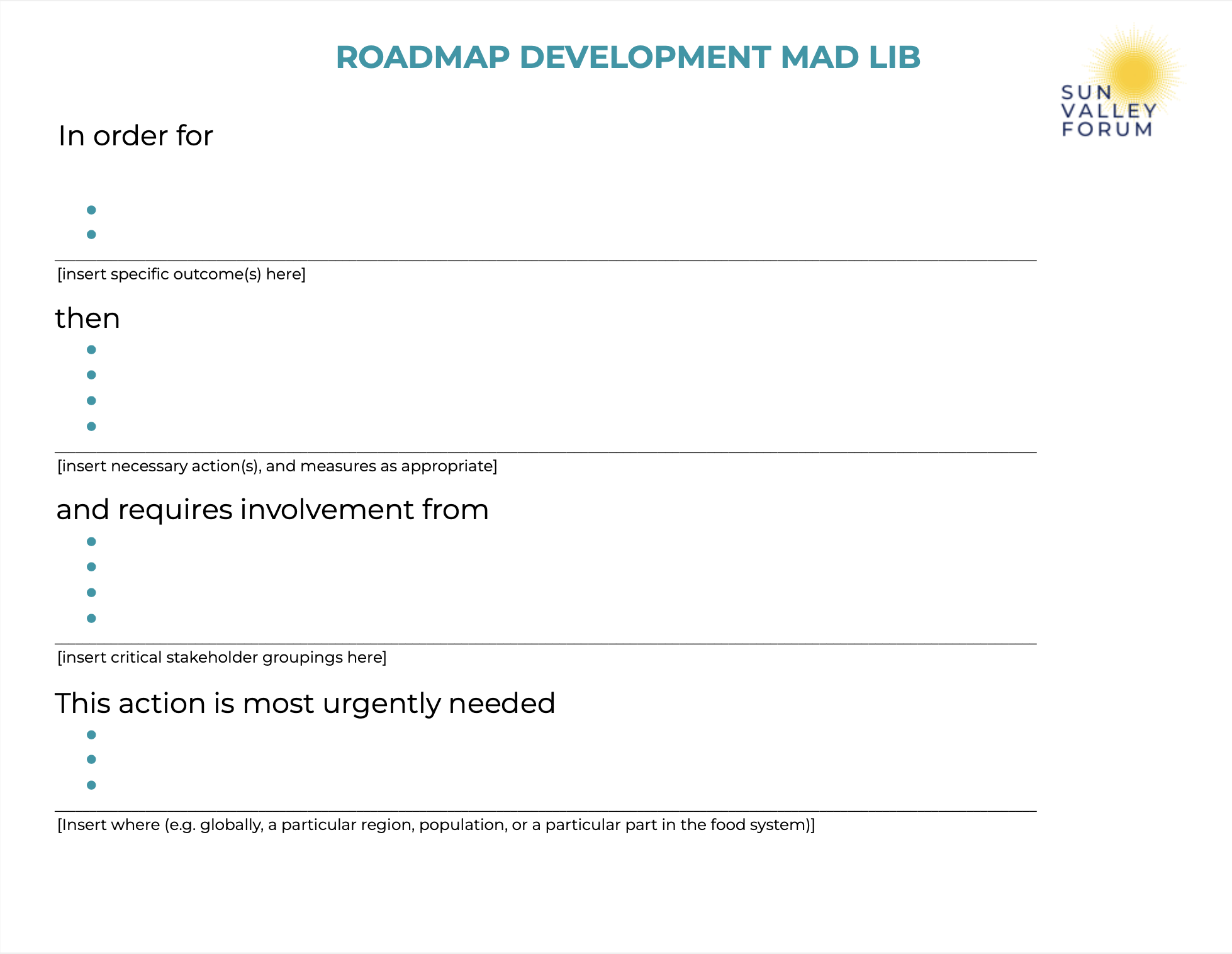Multiplier Effect: Engaging People, Building Community
“What is the future we want to run toward?”
i. The Sun Valley Forum Multiplier Effect Sessions
The Sun Valley Forum is hosted annually by Christensen Global as a catalyst for climate solutions and a hub for connecting diverse visionaries and changemakers around a shared purpose. Its Multiplier Effect (ME) sessions are designed to illuminate key strategies, spark conversation and drive action by leveraging the Forum’s year-round expertise, reach, and resources. These workshops are discussion-based, beginning with presentations on the mainstage, followed by interactive working sessions to deepen engagement, resulting in concrete recommendations, initiatives and collaborations.
II. About this Multiplier Effect Session
On June 24, 2025, the Forum facilitated a workshop with the aim of advancing public engagement through effective communication and storytelling strategies. The session was hosted by Jean Oelwang, Founding CEO of Planetary Guardians; Shannon O’Leary, Founder of the EarthSense Foundation; and Justin Winters, Co-Founder and Executive Director of One Earth. Centered around a dynamic and participatory format, the workshop guided attendees through key discussion prompts, including: “Where should we be focusing our dollars and efforts?”, “What solutions are working?”, “Who is not at the table and doing this work?”, and “What are the calls to action from each table?” The overarching goals of the session were to identify key barriers, gaps, and opportunities; spotlight scalable solutions; and collectively report on recommendations.
III. The Challenge
Led by Dr. Johan Rockström of the Stockholm Resilience Center and Potsdam Institute for Climate Impact Research, the Planetary Boundaries framework is based on Complex System Science and Earth System Science, studying the interactions between Earth’s systems and human activity. The Boundaries provide metrics for the thresholds beyond which significant, potentially irreversible changes to the Earth’s ecosystem could occur, and the key question is are humans living within the Planetary Boundaries, which sustain life, including human health and life? Humans have already burst past 6 of the 9 Planetary Boundaries, and are on the precipice of breaking through a 7th. We must urgently align our human activity to the planetary boundaries to ensure a safe operating space for humanity, and we need broad public engagement and access to the right tools for action.
The annual Planetary Health Check (PHC) was created to provide a widely understandable and scientifically-founded overarching human and nature health assessment each year, to understand where we are now, the directions we are heading, and where we need to focus our efforts. The PHC has the potential to inform powerful decisions at all levels, of policymakers, business leaders, investors, advocates and all of us in what we do, to enable us to make better decisions. The key challenge we sought to tackle at the 2025 Forum is how to deliver resonant messages through trusted voices and effective channels. While many strategies show promise, growing obstacles hinder their implementation. Disinformation is rapidly gaining ground, and current communication strategies are igniting fear rather than action.
Planetary Health Check 2024: 6 of 9 Boundaries Breached
IV. The Opportunity
The Sun Valley Forum community brings together deep, diverse expertise – spanning investors, storytellers, and visionaries ready for tangible action. By harnessing this collective reach, we have a powerful opportunity to collaborate, identify what’s working, address critical gaps, and accelerate solutions. Through mobilizing new resources, forging fresh partnerships, and igniting bold action, we can drive greater impact together. The goal of this multiplier effect workshop was to leverage these resources and minds to determine the most effective way to engage the public in climate action and eliminate disinformation.
V. The Approach
The multiplier effect workshop is structured in a discussion-based format, with an interactive working session. Following the presentation from Jean Oelwang, Shannon O’Leary, and Justin Winters, participants had the opportunity to choose between seven topics with corresponding table hosts.
Nature and Justice: Jade Begay, EJ Agency
Tapping into culture: Michael Hawthorne, Jr., Klean Energy Kulture
Organizing for results: Emmy Scott, Earth Guardians
Leveling the Playing Field - How to Make the Internet Work for Us: Claire Atkin, Check My Ads
Brands and consumers: Anna Robertson, The Cool Down
Job opportunity as onramp: Kristy Drutman, Founder & CEO, Green Jobs Board
Attuning to our communities - Moving beyond yelling, telling and selling to relational strategies for impact: Dr. Renée Lertzman, InsideOut
Story, film, and technology: Louie Schwartzberg, Cinematographer, Moving Art
Informed by the Rockefeller Foundation’s Bellagio convening approach, each table used a “Mad Lib” structure to spark discussion and build solutions. This tool was designed to help craft clear, strategic messages by prompting participants to define four key elements: their overarching goal or vision, the actions needed to achieve it, the key stakeholders involved, and where the work is most urgently needed. After a brief introduction to the framework, participants were invited to identify a challenge or opportunity they felt passionate about and fill in the blanks accordingly. Once completed, participants shared their drafts for group feedback and refinement.
VI. Key Takeaways
The workshop helped us break the silos by firstly gaining a deeper understanding of the playing field and then leveraging the powerful platforms provided by One Earth and Planetary Guardians. Additionally, the topical tables exposed how we can engage people to deliver results, sharing actionable insights and determining next steps. Each discussion found common ground, and from there, we moved beyond fear and fragmentation. Instead of staying locked in problem-focused thinking, we reframed the conversation around possibility and shared vision. We specifically recognized that internal conflicts weaken our collective strength, and that real progress depends on unity and collaboration. Collectively, each table emphasized the importance of leading with hope. We found that stories that inspire action toward a better future resonate more deeply than those that dwell in darkness.
At the “Tapping into Culture” table hosted by Michael Hawthorne Jr. from Klean Energy Culture, we explored how culture is the root of transformation – and to create systemic, equity-centered change, we must implement intersectional frameworks. This means building authentic community partnerships and investing in new narratives that reflect joy, resilience, and truth.
At the “Organizing for Results” table with Emmy Scott of Earth Guardians, participants explored the power of unexpected alliances, which can all be powerful messengers. This includes Indigenous voices, local leaders, individuals across the political spectrum, and digital influencers – all of which have the opportunity to organize and speak nonpartisan action. Dr. Renée Lertzman further emphasized this message with her conversation on “Attuning to our communities: Moving beyond yelling, telling and selling to relational strategies for impact”, highlighting that engagement requires emotional intelligence, deep listening, and connection. Participants underscored that people don’t change when they’re pressured, but instead act when they feel seen and supported. Together, these discussions reinforced that our greatest leverage for transformation lies in how we relate to each other and who we invite into the conversation.
Emmy Scott, CEO of Planetary Guardians, shares her insights during the ME session.
Building on the need for relational strategies and inclusive engagement, the conversation at the “Internet: Leveling the Playing Field” table with Claire Atkin of Check My Ads highlighted digital access as a key pillar of equity. Participants stressed that universal internet access is essential for education, healthcare, and civic participation, and must not be clouded by dis / misinformation. Achieving this requires public-private partnerships, community-led solutions, and urgent action from local governments, broadband providers, and funders. Disinformation is a prevalent theme among public news and information sharing platforms, and leads to widespread misunderstanding, erosion of public trust, and political polarization – often undermining informed decision-making and democratic processes. Proper regulation is necessary to mitigate disinformation, and policy must mirror that.
The path forward is clear: start local, build together, spark emotion, and engage overlooked communities with mentorship and support. Brands and individuals alike must be empowered to take risks, speak out, and drive momentum with bold, clear, and factual messaging. When people have an emotional connection to a particular issue, they are more willing to act upon it.
Explore more on our YouTube channel with sessions that give further context to this workshop












